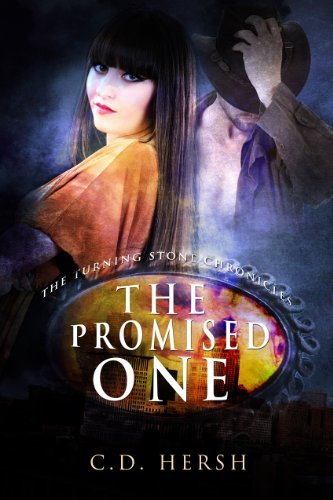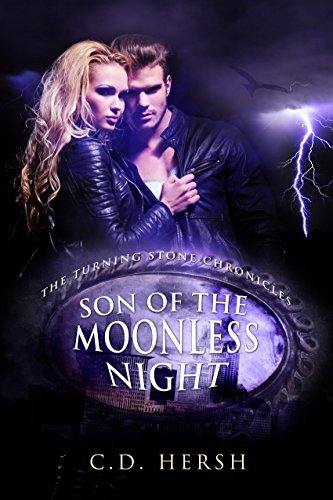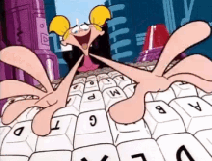C.D. Hersh's Blog, page 37
June 29, 2023
Friday Feature List Making for a writer

If you’re like us, you have a to-do list. It’s filled with the mundane-but necessary-things that must be accomplished to make life run smoothly: go grocery shopping, pay the bills, do the laundry, call the plumber to unstop the toilet. Sometimes these things, and life in general, can get in a writer’s way. But just sitting down at the keyboard isn’t the only thing a writer needs to do. There’s more to writing than putting words to paper or on computer screens. Here are a few suggestions we came up with for your to-do list. Don’t just write – feed your soul and your muse too.
1. Read. Read books, magazines, newspapers, the back of cereal boxes-whatever you can get. Writers must be readers.
2. Visit McDonald’s at lunchtime and pretend you’re a kid again. Buy a Happy Meal, eat it slowly, play with the toy, play with your food, make kiddie noises, and watch the other kids play. Writers must be able to get into the skins of other people in order to write realistically.
3. Make a journal entry. Write about your dreams, your past, your goals, your feelings. Free-write to let creativity reign. Writers have to tap into the unconscious, creative brain functions that allow characters to come alive, ideas to bubble to the surface, and creativity to flow.
4. Take a walk, jog around the block, visit the gym. Writers need exercise to stay healthy.
5. Spend time with people. Writers can’t be lone wolves all the time. We need the stimulation of companionship to recharge.
6. Pull your lawn chair under a tree and look up at the sky. Writers need time to stare into space and dream.
7. Sleep late, go to bed early, take a nap. Writers need their rest so they can be alert to the world around them.
8. Remember a time when your emotions ran high and re-experience it. Feel the anger, love, hate, fear, loneliness, sadness, courage, and jealousy. They are part of life. Writers must be able to pull emotions to the surface in order to write with passion.
9. Close the office door and spend time by yourself. Writers need to be alone to create.
10. Write today, tomorrow, and every day. Writers aren’t writers unless they spend the time doing the one thing they, by their very nature, can’t avoid doing. Spill your passion onto the page and release the magic into your writing life.
Perhaps a book you could put on your list for reading could be one of ours. You can find our books on our book page, under the menu at the top of the page or on our Amazon Author Page
June 27, 2023
Wednesday Special Spotlight June 28th
On this day in1914, Archduke Franz Ferdinand, heir to the Austro-Hungarian throne, and his consort, Sophie, were assassinated by Gavrilo Princip in Sarajevo, Bosnia, precipitating the outbreak of World War 1.
In our series, The Turning Stone Chronicles, our heroes and heroines fight to prevent a war instigated by the evil group of shapeshifters lead by our arch villain, Falhman. They are in a constant struggle to prevent the shifter conflict from spilling over into the human world, although sometimes this occurs with significant consequences. Here’s an excerpt, of such a time, from the first book of the series, The Promised One:
The woman stared at him, blood seeping from the corner of her mouth. “Return the ring, or you’ll be sorry.”
With a short laugh he stood. “Big words for someone bleeding to death.” After dropping the ring into his pocket, he gathered the scattered contents of her purse, and started to leave.
“Wait.” The words sounded thick and slurred . . . two octaves deeper . . . with a Scottish lilt.
Shaw frowned and spun back toward her. The pounding in his chest increased. On the ground, where the woman had fallen, lay a man.
He wore the same slinky blue dress she had—the seams ripped, the dress top collapsed over hard chest muscles, instead of smoothed over soft, rounded curves. The hem skimmed across a pair of hairy, thick thighs. Muscled male thighs. Spiked heels hung at an odd angle, toes jutting through the shoe straps. The same shoes she’d been wearing.
The alley tipped. Shaw leaned against the dumpster to steady himself. He shook his head to clear the vision, then slowly moved his gaze over the body.
A pair of steel-blue eyes stared out of a chiseled face edged with a trim salt-and-pepper beard. Shaw whirled around scanning the alley.
Where was the woman? And who the hell was this guy?
Terrified, Shaw fled.
The dying man called out, “You’re cursed. Forever.”
TITLE: The Turning Stone Chronicles
GENRE: Urban fantasy, Paranormal, Romance
HEAT LEVEL: Sensual
>b>BLURB:
Three ancient Celtic families. A magical Bloodstone that enables the wearers to shape shift. A charge to use the stone’s power to benefit mankind, and a battle, that is going on even today, to control the world. Can the Secret Society of shape shifters called the Turning Stone Society heal itself and bring peace to our world?
Find out in The Series The Turning Stone Chronicles
Book one of the chronicles titled “The Promised One” available on Amazon In the wrong hands, the Turning Stone ring is a powerful weapon for evil. So, when homicide detective Alexi Jordan discovers her secret society mentor has been murdered and his magic ring stolen, she is forced to use her shape-shifting powers to catch the killer. By doing so, she risks the two most important things in her life—her badge and the man she loves.
In the wrong hands, the Turning Stone ring is a powerful weapon for evil. So, when homicide detective Alexi Jordan discovers her secret society mentor has been murdered and his magic ring stolen, she is forced to use her shape-shifting powers to catch the killer. By doing so, she risks the two most important things in her life—her badge and the man she loves.
Rhys Temple always knew his fiery cop partner and would-be-girlfriend, Alexi Jordan, had a few secrets. He considers that part of her charm. But when she changes into a man, he doesn’t find that as charming. He’ll keep her secret to keep her safe, but he’s not certain he can keep up a relationship—professional or personal.
Danny Shaw needs cash for the elaborate wedding his fiancée has planned, so he goes on a mugging spree. But when he kills a member of the secret society of Turning Stones, and steals a magic ring that gives him the power to shape shift, Shaw gets more than he bargained for.
Book two of The Turning Stone Chronicles titled “Blood Brothers” available on Amazon. When Delaney Ramsey is enlisted to help train two of the most powerful shape shifters the Turning Stone Society has seen in thousands of years, she suspects one of them is responsible for the disappearance of her daughter. To complicate matters, the man has a secret that could destroy them all. Bound by honor to protect the suspect, Delaney must prove his guilt without losing her life to his terrible powers or revealing to the police captain she’s falling for that she’s a shape shifter with more than one agenda.
When Delaney Ramsey is enlisted to help train two of the most powerful shape shifters the Turning Stone Society has seen in thousands of years, she suspects one of them is responsible for the disappearance of her daughter. To complicate matters, the man has a secret that could destroy them all. Bound by honor to protect the suspect, Delaney must prove his guilt without losing her life to his terrible powers or revealing to the police captain she’s falling for that she’s a shape shifter with more than one agenda.
The minute Captain Williams lays eyes on Delaney Ramsey, he knows she’s trouble. Uncooperative, secretive, and sexy, he can’t get her out of his mind. When he discovers she has a personal agenda for sifting through all the criminal records in his precinct, and secretly investigating his best detective, he can’t let her out of his sight. He must find out what she’s looking for before she does something illegal. If she steps over the line, he’s not certain he can look the other way for the sake of love.
Book three of The Turning Stone Chronicles titled “Son of the Moonless Night” currently available on Amazon. Owen Todd Jordan Riley has a secret. He’s a shape shifter who has been hunting and killing his own kind. To him the only good shifter is a dead shifter. Revenge for the death of a friend motivates him, and nothing stands in his way . . . except Katrina Romanovski, the woman he is falling in love with.
Owen Todd Jordan Riley has a secret. He’s a shape shifter who has been hunting and killing his own kind. To him the only good shifter is a dead shifter. Revenge for the death of a friend motivates him, and nothing stands in his way . . . except Katrina Romanovski, the woman he is falling in love with.
Deputy coroner Katrina Romanovski has a secret, too. She hunts and kills paranormal beings like Owen. At least she did. When she rescues Owen from an attack by a werebear she is thrust back into the world she thought she’d left. Determined to find out what Owen knows about the bear, she begins a relationship meant to collect information. What she gets is something quite different-love with a man she suspects of murder. Can she reconcile his deception and murderous revenge spree and find a way to redeem him? Or will she condemn him for the same things she has done and walk away from love?
Book four of The Turning Stone Chronicles titled “The Mercenary & the Shifters” available on Amazon. A desperate call from an ex-military buddy lands a mercenary soldier in the middle of a double kidnapping, caught in an ancient shape shifter war, and ensnared between two female shape shifters after the same thing … him.
A desperate call from an ex-military buddy lands a mercenary soldier in the middle of a double kidnapping, caught in an ancient shape shifter war, and ensnared between two female shape shifters after the same thing … him.
If you’re interested in checking out our other books they are on our book page, under the menu at the top of the page or on our Amazon Author Page
June 26, 2023
Tell Again Tuesday What’s in a name?
Naming Your Fictional Characters – Not As Easy As You Might ThinkBy Lucy Mitchell

Naming fictional characters is one of those writing activities a non-writer might view as…simple to do. *Sigh* They probably think we pluck a random name out of thin air, sit down to write and bring that newly named fictional person to life. If only naming a fictional character was that simple.
Naming a character can . . .
For the rest of the blog go to:June 22, 2023
Friday Feature Twelve Pointers for Pitching to an Editor or Agent
In March of 2013, we had the best editor pitch in our careers—the one that sold our book The Turning Stone Chronicles—The Promised One to Soul Mate Publishing. It wasn’t the first time we had pitched this book, or others, and it probably won’t be the last time we have to pitch. Pitching is a constant for any writer and that face-to-face contact goes a long way. Along our journey we’ve picked up a lot of tips. Here are twelve pointers we hope you’ll find helpful.
• Dress for success. Whether you realize it or not, this is a job interview. Even though you might type in your PJs, you want to make a good first impression on the editor.
• Make a cheat sheet note card (small enough to fit discreetly in your hand) with your title, subgenre, book length, hook, your blurb and any contests the book finaled in. These are notes for you, not for the editor. We all get nervous and forget the simplest things. A cheat sheet comes in handy when this happens.
• Smile. It makes you look confident.
• Keep eye contact with the editor. This also helps you look confident.
• Give her your business card. Make sure all your contact information is on your card: website, email, telephone, and any other contact information you’d like to add. We put our book blurb on the back of our business card so it’s available for her to read (should she choose) after we’ve left. It’s also a great way to keep your story in front of her since most editors don’t accept one-sheets or other papers at a conference, but they will accept your business cards. Remember, they have to carry anything they accept back with them on the plane.
• Take a deep breath and talk distinctly and slowly. It’s natural to speak quickly when you’re nervous, but in a room with several other editors and writers giving their pitches it’s easy to miss words that are said too fast.
• Start your pitch with your book title and book cover blurb. Don’t read it—memorize it. Do your best to make it sound like you’re telling a friend about your book, not reeling off a commercial. Practice makes perfect on this hint. After you hooked her, hopefully, with your great blurb, let her know the subgenre, length, contest wins, or other pertinent information about the book.
• Be enthusiastic about your book. She’ll notice your passion and it could spark her interest.
• Keep your initial presentation to about half the time allotted for the pitch. This leaves time for her to ask questions.
• If you see she’s not interested, or she says she just bought something like it, or you have extra time, have another book ready to pitch. Just make sure it’s in a genre she’s accepting. Catherine actually pitched three books in one session because her initial pitch went so fast. The editor asked to see all three!
• Ask her how to submit. Make sure you get her business card with contact information. There’s nothing worse than leaving the interview and realizing you didn’t find out where to send your manuscript. And, yes, Catherine has been so nervous and excited that an editor asked for her book that she walked out without her contact information.
• Don’t forget to say, “Thanks” as you leave. This may seem like a given, but in tense situations it’s easy for things slip your mind, as noted by Catherine’s mistake in the hint above. If she doesn’t ask for your book, be sure to thank her for her time. You don’t want to burn any bridges. You might have another book later you’ll want to pitch to the same editor or house.
Our chance came, not at a scheduled meeting, but at the breakfast table. When you’re at a conference you need to be ready to give your pitch at anytime. Just keep it short and to the point.
Do you have any tips to add to this?
Please add in the comments.
If these points interested you then check out our books on our book page, under the menu at the top of the page or on our Amazon Author Page
June 20, 2023
Wednesday Special Spotlight You might be a writer if…

Well, you might be if…
…your book characters are more real to you than your family members.
…you buy so much paper and ink you’re thinking about investing in Hewlett Packard or Epsion.
…you get up early or stay up late to find quiet time to write.
…you have a notebook and pen stashed next to your bed, the toilet, your easy chair, your purse and the car to catch ideas as they come to you.
…you know how to use the dictation note app on your smart phone to record ideas.
…you know how to write legibly…in the dark.
…everything you see or hear elicits a “there’s a story/book/article idea there” comment from you.
…you get grouchy when you’re away from the keyboard too long.
…your friends don’t tell you too much about what’s happening in their lives because they are afraid they’ll turn up in one of your stories.
…a day without writing is like a day without sunshine.
…you subscribe to a dozen magazines and newspapers just to get story ideas.
…you have a hundred rejection letters, but keep sending out your manuscript.
…you actually write. The real proof is in the production of completed works!
Can you think of any other things that might make you a writer? Please share in the comments.
Regardless of wither you are a writer or not but like to read why not settle into a comfy chair and check out our books on our book page, under the menu at the top of the page or on our Amazon Author Page
June 19, 2023
Tell Again Tuesday Writing Aids
6 Fun Must-Haves for WritersBy Leigh Goff

Writing or working from home is more than just you and your laptop. It’s the small world around you, too. Your writing environment plays an important role in your productivity and focus. I’ve been writing for over ten years and have found a few fun, yet necessary items that add to my comfort, stir my creativity, and get me in the writing mood. Whether you’re trying to achieve a specific word count for the day or put together the perfect outline for your upcoming novel, these are my . . .
For the rest of the blog go to:June 15, 2023
Friday Feature Six Tips to Revise Your Writing

While we have been working in our (my wife’s) garden, between rainy days, cleaning up weeds, volunteer trees and leaves, we have been talking about cleaning up the two years’ worth of bird droppings and green mold from the railings and edges of our Trek decking. Our deck is a three-level beauty, designed by Catherine. The deck is a joy to sit on and a great place to entertain, but it’s a bear to clean. We have noticed the birds’ ‘gifts’ deposited on the railings and the mold creeping across the banisters, and meant to get out and take care of them, but other things got in the way. We got too busy, worked too hard, it got too hot to work on the deck, and we were just too lazy.
In retrospect, we should have paid more attention to what was happening, because we have let a minor job turn into a major one, once again. Oh, yes, we’ve faced this challenge before.
Last time we cleaned, we spent about five hours cleaning the railings and about two feet around the lower two decks, scrubbing, rubbing, and rinsing. We even cleaned some spots with a toothbrush! Then we cleaned the center of the two lower decks, the steps, and the balcony.
This cleaning exercise, that we have to do again, is a lot like revising a book—you have to take the time to get rid of all the crap you let accumulate. That’s every time you write.
We’re not saying our books, or even your books, are crap. We all write well, right? But it’s so easy to get lazy and let a lot of stuff slip in like passive voice, adjectives, groaning dialogue tags, purple prose, slow pacing, and way too much back story, until, like the railings of our deck covered in bird droppings, you can no longer see the beauty of your original creation. We don’t know about you, but we hate revisions and would rather do everything we can to get our books as clean as possible the first go around.
So, here are six tips we use to get the bird droppings out of our writing.
• Reread the previous days’ work. This not only gives a fresh look at your writing but also helps get back in the groove. If you’ve been away from a WIP more than few days you might even go back to the previous chapter. By revisiting each chapter, you get a head start on the small revision stuff.
• Write with grammar check turned on. You can set grammar check to highlight a lot of things, but the most important use we have found is to highlight passive writing. Having attuned yourself to those squiggle grammar check lines, the passive verbs are very clear to see. A glance tells where you need improvement in this area. Not every passive sentence can be revised into an active one, but many can and doing so will make your writing stronger.
• Do a search for “LY” on each chapter as you complete it. It’s amazing how many of those sneaky adjectives creep in.
• Look for long paragraphs. Too little white space on a page can often be a warning sign of heavy narrative, back story, or too much description.
• Check every page for tension. Donald Maas says we should have tension on every page. It doesn’t have to be bang ‘em up, slam ‘em up tension, but there needs to be something that keeps the story humming along.
• Do a check of dialogue. Are there too many “he saids” or “she saids.” Or are there too many lines with no dialogue or action tags? Have you gritted or laughed the dialogue? Teeth are gritted not words, and how in the world do you laugh words? We know we can’t.
These six items may seem like little steps toward revision, but sweating the small stuff now can make your major revisions easier. And who doesn’t want that?
What do you do as you write to help your revisions go faster?
Now here is a little about our paranormal series, The Turning Stone Chronicles .
Three ancient Celtic families. A magical Bloodstone that enables the wearers to shape shift. A charge to use the stone’s power to benefit mankind, and a battle, that is going on even today, to control the world. Can the Secret Society of shape shifters called the Turning Stone Society heal itself and bring peace to our world? Find out in the series The Turning Stone Chronicles.
If this piques your interest, then settle into a comfy chair and check out our books on our book page, under the menu at the top of the page or on our Amazon Author Page
June 13, 2023
Wednesday Special Spotlight Revision—The Hard Way

Several years ago, my husband and I worked for several weeks on removing path stones and laying a paver stone edging along the north walkway of our yard. Originally the path had square, concrete paver stones, set in the middle of beige gravel, to keep us from walking in a rather wet area. The area around the path was soggy dirt when we first built it. Recently, we decided to use the path stones elsewhere. They had become a trip hazard for me. Besides, I was tired of the scruffy look of the grass against the path edge.
When we laid the gravel path, it looked trim and neat. Of course there wasn’t much grass along the curving edge, so neat was to be expected. After seeding the lawn, and being lax in trimming the edge (it’s hard to run a weed whacker along gravel), we lost lots of ground to creeping rhizomes, which required a lot of hard digging to remove.
As we began digging up against the plastic paver edge and pulling hunks of matted grass up, two thoughts came to my mind:
• What you originally envision isn’t always the best thing.
• We should have laid the path this way and saved ourselves a couple of weeks of hard labor redoing the walkway.
This, we say, is why you think a project through and let it simmer before you start making major changes. It’s also the reason you don’t send your articles, books or any other written work out to an editor as soon as the ink dries on the paper. You need to take time to make sure you’ve thoroughly revised it.
Stories change over the period it takes to write them … it’s the nature of the beast. Even if you have what you believe to be the best plotted synopsis or chapter graphs, it’s amazing how many errors and problem you will find in your manuscript when you let it rest after you write The End. We’re not recommending you wait years (like we did with the pathway) before pulling out your book for revision, although we have done that with a couple of things and discovered the book wasn’t as good as we thought. Boy, was that an eye opener! We are, however, suggesting you give yourself at least a week before rereading, revising, and routing your work to an editor.
Ask yourself these questions when you look at your work again:
• Have I made any amateur mistakes: misspelled words, bad grammar, incorrect punctuation, the wrong word count or slant for the target market?
• Do all of my scenes have a beginning, middle and an end? Are they necessary to the story?
• Are my words weak? Do I have too much passive voice, too many repetitious words, too many adverbs?
• Do I have too much back story? Is it an info dump or sprinkled through the pages?
• Do I have enough conflict? Every scene needs conflict. If it doesn’t have conflict then get rid of it.
• Have I tied up all the subplots?
• Have I missed any elements I started with but eliminated or changed along the way? Perhaps I dropped a character from the story and he shows up later, or the story was set in Chicago and changed it to Cincinnati halfway through. Are my characters’ eyes and hair still the same color?
• And, last, but not least—is this piece the best I can possibly make it? Will it hold up to the test of time?
Our pathway didn’t hold up to the test of time. We didn’t create the best thing we possibly could for that spot, hence our need to redo it. When we began installing the path, we didn’t see creeping grass, an impossible edge to trim, and paver stones that created big stumbling blocks, and as a result we ended up with a huge revision of the path.
Lessons learned?
Number one: Expect change. The only constant in life is change.
Number two: Think it through—completely through—before you begin, and any revisions you have to make will be a lot easier.
That applies to books as well as home projects.
Do you have any revision stories that you could make easier with a bit more thought?
Thinking of change, our paranormal romance series is about folks who use magic to shape shift, and it is not the ordinary animal shape shifting. We think readers will be surprised. Amazon reviewers have called the story line “totally unique,” and “a book that keeps you turning the pages to the end.”
InDtale Magazine review said “The Promised One” takes paranormal and turns it on its ear, taking shape-shifting to a whole other level. The bad guy perspective is particularly unique and fun, and the characters three-dimensional. . .”
If this piques your interest, then settle into a comfy chair and check out our books on our book page, under the menu at the top of the page or on our Amazon Author Page
June 12, 2023
Tell Again Tuesday Legalize of writing
When Your Publishing Contract Flies a Red Flag: Clauses to Watch Out ForBy Victoria Strauss
After the excitement of a “yes” from a publisher comes the job of assessing your publishing contract.
Facing down ten pages of dense legalese can be a daunting task, especially for new and inexperienced writers, who may not have the resources to hire a literary lawyer, or have access to a knowledgeable person who can help de-mystify the offer terms.
And it is really, really important to assess and understand those terms, because publishing contracts are written to the advantage of publishers. While a good contract should . . .
For the rest of the blog go to:June 8, 2023
Friday Feature Collaborative Writing

Lots of people we know look at us as collaborative writers and say, “I don’t know how you two do it. I’d kill my spouse if I had to work with him/her.”
Well, we’re both still alive and healthy and love working together.
So what’s our secret? For the inquisitive minds who want to know, here are a few reasons why our writing partnership works.
We like each other and respect each other—a lot. Respect is paramount in any working relationship.
We’ve been together more years that we’ve been apart. As a result, we know each other very well.
We have complimentary talents and we recognize that. Donald is a great idea and plotting person, and Catherine is good at the technical part of writing, the grammar, spelling, punctuation, and etcetera.
We laugh a lot when we’re working together, even if it’s a serious scene. Nothing brings people together like laughter.
We plot our stories in detail, but still allow room for the characters to take us to unexpected places. When they do what we haven’t planned, both of us have to sign off on what has happened before it makes it into the book.
We’re willing to throw ideas, scenes and whole sections of each other’s writing out. There are no sacred cows in our partnership.
Our methods of collaborative writing are fluid. Sometimes we create using a totally collaborative effort, literally writing together line-by-line (we’ve created a number of our plays using this method). We might revamp something one of us has created as a solo writer, or we might work with one of us functioning as the major writer and the other as editor. Changing things keeps our interests up and our egos in check.
And last, but certainly not least, we keep the lines of communication open. Writing is usually a solo job, but when you’re working with someone else, you have to let them know how you feel about what’s being plotted, written, and critiqued. If you don’t, then you can stifle the creative flow as well as the collaborative relationship. When we plot and one of us throws out a hasty, “I hate that idea!” (and we’ve done that) there are no hurt feelings on the part of the other person. We will ask for clarification as to why, and the protesting party must come up with a reasonable excuse, but we never get upset, want to quit working together, or get a divorce over it.
We can’t speak to the writing methods of other co-authors, although we have read that some write opposing chapters or each take a point of view, something we haven’t tried yet. However, as a married couple and co-authors, we do feel we bring something unique to the table—a spark we hope will take us a long way on our writing journey. A spark that enriches our personal relationship. For us, that’s enough reason to work together as C.D. Hersh.
Have you ever co-authored something? What worked for you in that relationship?
Following is a sample of our collaborative writing. An excerpt from The Promised One, the first book in our Turning Stone Chronicles Series.The woman stared at him, blood seeping from the corner of her mouth. “Return the ring, or you’ll be sorry.”
With a short laugh he stood. “Big words for someone bleeding to death.” After dropping the ring into his pocket, he gathered the scattered contents of her purse, and started to leave.
“Wait.” The words sounded thick and slurred . . . two octaves deeper . . . with a Scottish lilt.
Shaw frowned and spun back toward her. The pounding in his chest increased. On the ground, where the woman had fallen, lay a man.
He wore the same slinky blue dress she had—the seams ripped, the dress top collapsed over hard chest muscles, instead of smoothed over soft, rounded curves. The hem skimmed across a pair of hairy, thick thighs. Muscled male thighs. Spiked heels hung at an odd angle, toes jutting through the shoe straps. The same shoes she’d been wearing.
The alley tipped. Shaw leaned against the dumpster to steady himself. He shook his head to clear the vision, then slowly moved his gaze over the body.
A pair of steel-blue eyes stared out of a chiseled face edged with a trim salt-and-pepper beard. Shaw whirled around scanning the alley.
Where was the woman? And who the hell was this guy?
Terrified, Shaw fled.
The dying man called out, “You’re cursed. Forever.”
If this piques your interest, then settle into a comfy chair and check out our books on our book page, under the menu at the top of the page or on our Amazon Author Page




